How Much Does A Bulldozer Cost?
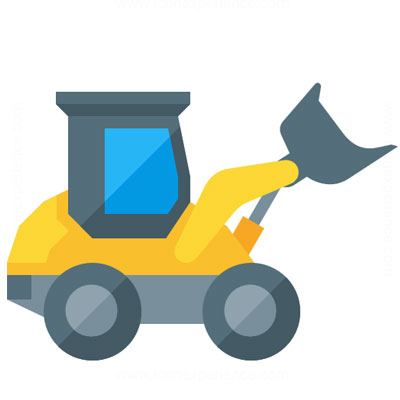 Wheel Loader Famous Brands
Wheel Loader Famous BrandsHow Much Does a Wheel Loader Cost?
The cost of a wheel loader depends on various factors such as brand, model, size, features, and location. Typically, the price of a new wheel loader can range from $30,000 to $500,000 or more, depending on the specific requirements.
For example, a small wheel loader such as the Caterpillar 908M Compact Wheel Loader can cost around $90,000 to $100,000, while a larger model such as the Komatsu WA900-8 Wheel Loader can cost over $800,000. Similarly, a used wheel loader can cost significantly less than a new one, ranging from $10,000 to $200,000 depending on the age, condition, and usage history.
It's important to note that the cost of a wheel loader is not just limited to the initial purchase price, but also includes ongoing maintenance and operating costs such as fuel, tires, repairs, and replacement parts.
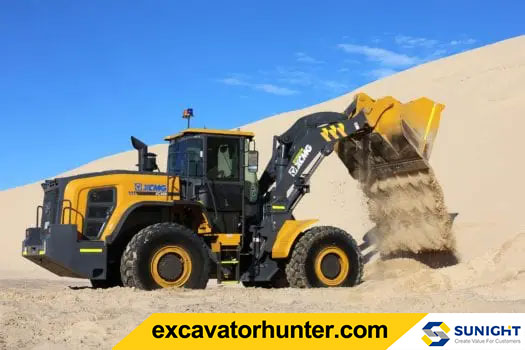
About Wheel Loaders
All wheel loaders feature a square bucket known as a loader. The loader is fixed either to the front or the back of the machine and can be maneuvered from side to side using the machine's flexible arms.
Wheel loaders are available in a variety of sizes and configurations. There are compact loaders, small loaders, mid-size loaders, and large loaders. Skid steers and backhoe loaders are also considered wheel loaders. In the case of backhoe loaders, the machines have a bucket in the front and a backhoe in the rear.
The biggest advantage to wheel loaders is the power they provide. However, wheel loaders tend to have limited dig depths, so they're only suited for shallow excavation jobs.
The price of a wheel loader depends largely on its size and features. However, some brands are pricier than others.
- Compact wheel loaders with less than 110 horsepower usually sell for anywhere from $40,000 to $130,000.
- Small wheel loaders with less than 180 hp usually cost $120,000 to $180,000.
- Mid-size wheel loaders with less than 350 hp can run $150,000 to nearly $500,000
- The largest wheel loaders with more than 500 hp can run up to $1 million. However, these provide more power than most construction companies need.
In general, for the most common wheel loader applications, you can find a quality machine in the $100,000 to $200,000 price range.
The Price To Buy A Wheel Loader
Today’s market offers a wide variety of wheel loader, the most widely used heavy equipment in the construction industry for shoveling, digging, dumping and transporting a wide variety of construction materials. It can also be used in fields such as agriculture and mining.
Wheel Loader Type
Wheel loaders come in a variety of sizes and configurations. There are compact loaders, small loaders, medium loaders and large loaders, skid steer and shovel loaders.
The compact wheel loader is the most widely used wheel loader. Compared with the large and medium-sized wheel loader, the cost is lower, it can travel fast, and it is more efficient in handling and loading work. It is also the most cost-effective device.
Large and medium-sized wheel loaders are mainly used in large-scale engineering fields, such as large-scale mining and large-scale construction industries.
Skid steer is smaller equipment than compact loaders and are more maneuverable for tighter spaces.
Lugong compact wheel loaders are very popular in the loader market. As the leader of compact wheel loaders in China, they can be widely used in farminig mining, construction and other industries. Its engine uses less fuel, and the articulated front end on the tires makes steering easier.
The Price To Buy A Wheel Loader
Wheel loaders come in different models with different prices. Generally, buying a new front end loader can range from $10,000 to $200,000, depending on the features offered and the size and weight of the machine. The cost of a wheel loader, in addition to the price of the wheel loader, should also consider fuel costs, maintenance costs, and parts costs.
In general, the more power a wheel loader needs, the more fuel it consumes. Compact wheel loaders consume less power and are still more fuel efficient.
Tire life is also an important factor that affects the cost of a wheel loader. The life of the tire is not only related to the quality of the tire itself, but also the slip steering of the tire. The slip steering of the tire is difficult, and the cost of the tire will increase accordingly. Using tires on rough surfaces or using inappropriate pressure or ballast is a surefire way to shorten their lifespan. Make sure you use terrain-appropriate tires to keep them moving.
Maintenance and parts costs. Keeping your equipment up-to-date with essential tasks like filter and fluid changes, lubricating parts, and performing regular inspections and repairs can keep your equipment working at peak efficiency and alert you to any problems before major work or expense is required. Making sure your operators are well trained on daily and weekly maintenance tasks can help them keep an eye on them. Good maintenance is one of the most important factors in maximizing the life of a machine.
Lugong loader not only has low price, but also has high quality, comfortable driving experience and high stability, which has always become the benchmark of the industry.
Things To Consider When Buying A Wheel Loader
What is your intended purpose?
Think about how you plan to use the front loader. List the tasks you wish to perform. Take this list with you when you go shopping. It will help you determine how much horsepower you need; how heavy your machine should be and what hydraulic flow and configuration you should be looking for.
Operates more demanding accessories such as mulchers and snow blowers. While a standard flow hydraulic system will sometimes provide the appearance of running high flow attachments, the performance will be disappointing. Know the hydraulic flow you need.
Bucket capacity
Buckets are the most common attachment on a wheel loader, so it’s important to know the loader’s capacity. Capacity is usually measured in cubic yards—equivalent to stacking material one yard high, one yard wide, and one yard deep—or about nine trolley loads. Subcompact loaders are limited to one cubic yard or less of material. Compact machines can typically lift 2 or 3 cubic yards, while medium and large loaders can lift up to 20 cubic yards or more. Bucket size is determined by engine output, hydraulic flow and machine weight. Get a loader with the required capacity.
Lift height
Wheel loaders have a lift height commensurate with their size and weight. Compact loaders are designed for relatively short lifts (lifting potted plants onto trailers, loading pallets, hauling and dumping dirt). Larger loaders can extend over the sides of dump trucks, reach overhead, or lift long uprights into place. So smaller machines can typically lift buckets to 8 to 10 feet, while medium machines can lift to 12 to 14 feet. Larger loaders can reach 25 feet or more. Make sure your loader can raise its arms high enough to perform the task you want.


 Whatsapp
Whatsapp Message
Message USED
USED  CASES
CASES 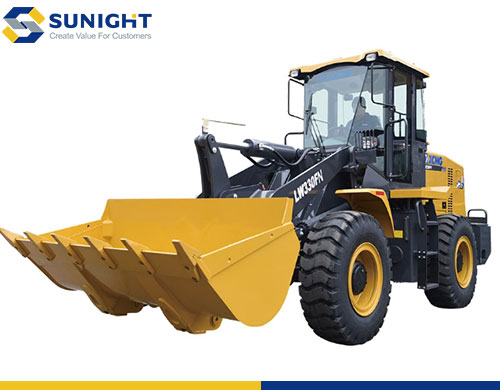
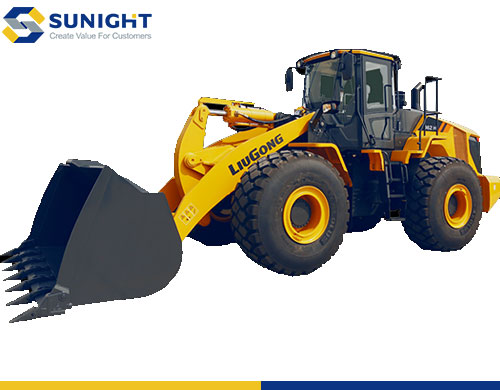
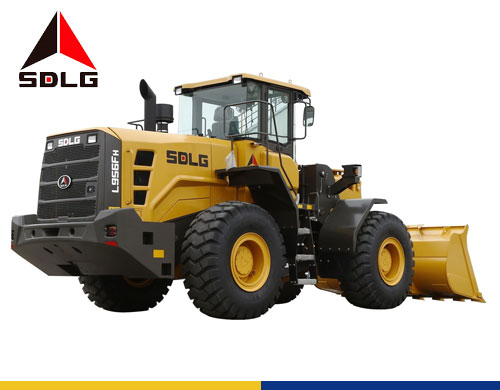
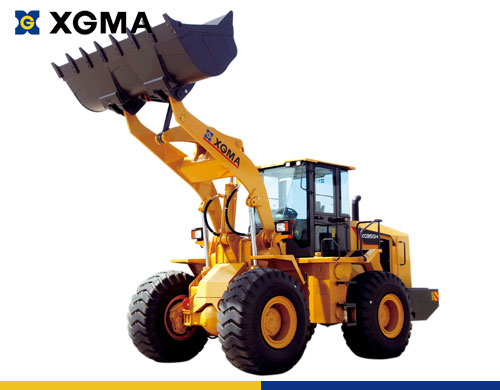
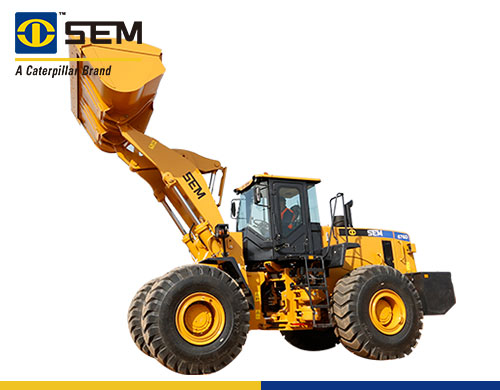
 Earthmoving Machinery
Earthmoving Machinery Road Machinery
Road Machinery Lifting Machinery
Lifting Machinery Truck Machinery
Truck Machinery Mining Machinery
Mining Machinery Logistics Machinery
Logistics Machinery Agriculture Machinery
Agriculture Machinery Concrete Machinery
Concrete Machinery Drilling Machinery
Drilling Machinery CONTACT US
CONTACT US





















